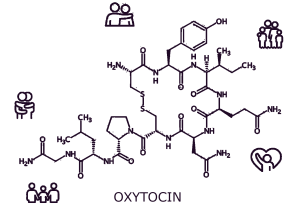Does the love hormone play a role in the pathophysiology of Huntington’s disease?

Huntington’s disease (HD) is an inherited, currently incurable neurodegenerative disorder. In addition to typical choreiform movements, HD causes a spectrum of non-motor psychiatric and cognitive symptoms. These disorders are the most disabling as they reduce patients’ autonomy and have a profound impact on the quality of life of both patients and their carers. Oxytocin is called the ‘love hormone’ because of its important role in regulating emotional and social behaviour. Interestingly, oxytocin levels in the cerebrospinal fluid of HD patients are significantly lower, which could be related to HD disorders of the psychic sphere. Therefore, as part of this study project, we will use a mouse model of Huntington’s disease to test the hypothesis that HD psychiatric disorders may be the result of a dysfunction of the oxytocin system and attempt to reverse the symptoms by administering oxytocin. If successful, this project will be the first step in the development of new oxytocin-based drugs for the treatment of Huntington’s disease.
Referees: Francesca Talpo, Francesca Raffin
Contributors:
![]()

![]()